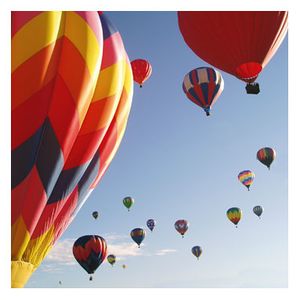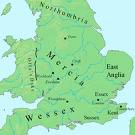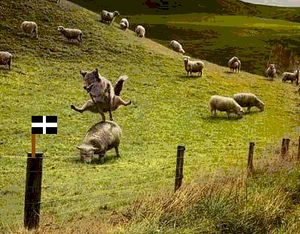Regions of England
“This royal throne of kings, this sceptred isle,
This earth of majesty, this seat of Mars,
This other Eden, demi-paradise,
This fortress built by Nature for herself
Against infection and the hand of war,
This happy breed of men, this little world,
This precious stone set in the silver sea,
Which serves it in the office of a wall
Or as a moat defensive to a house,
Against the envy of less happier lands,
This blessed plot, this earth, this realm, this England.
Except for Scousers of course - the thieving bastards,
and Geordies are right thick chods.”
– William Shakespeare on Richard II
As the above quote suggests, English regionalism has existed for many centuries, and has exercised a divisive influence of the history of the so called 'sceptred isle'. The English Civil War, for example, was started when King Charles I - a Brummie - was heard to remark whilst in London that "all cockneys are wankers". Unfortunately for the King, this comment was repeated to parliament, at the time made up almost exclusively of cockneys. The resulting conflict lasted almost 300 years, and ended with the the decapitation of the unfortunate monarch, and the people of Birmingham being forced to adopt a particularly daft accent which has lasted to this day.
However, for most foreigners, the issue of English regionalism is a confusing one. Indeed, many foreigners assume that all Englishmen are from London and talk either like Dick van Dyke in 'Mary Poppins' or like Hugh Grant in all those shit films he's been in. What follows is a guide to the English regions which aims to make clear the huge variety and manifold differences which exist between them.
The Southeast/Snobland[edit | edit source]
Inhabitants - Immigrants, Cockneys, Mockneys, Toffs
Capital - London
Population - 600 million
Main industries - Slavery, Evildoing, Chimneysweeping, Playing the bad guys in Hollywood films
Major Religions - Capitalism, Satanism, Gun crime
The southeast is the most populous and well known of the English regions, containing London and its surrounding dependencies. The southeast is organised as a modern feudal society, with the Queen at the top, the Toffs forming the aristocracy, the Cockneys acting as workers and soldiers, and the Mockneys forming the wretched peasant underclass. This situation was a result of the Great London Rising of 1848, when the Cockneys of London, urged on by the Toffs invaded the surrounding counties in search of slave labour and living space. The people of the 'Home Counties' which surrounded London had previously been gentle farming folk, but were forced by the Cockneys to adopt the Cockney culture, including its vile accents and fashions. Ever since the people of the Home Counties, now known as 'Mockneys' have been forced to toil as serfs, with the Cockneys acting as their slave drivers and the Toff's building huge mansions and giant factories on what was once beautiful countryside.
The Toffs and Cockneys have successfully hidden the truth of the brutal regime that exists, presenting themselves to the world as Quirky English Eccentrics and Loveable Cheeky Chappies, but this could not be further from the truth. Suffice to say, any visitor to London should stick with other tourists, as wandering off alone usually ends with the hapless individual being dragged into an alley and clubbed unconscious, before waking up in one of the infamous East End slave markets.
The West Country[edit | edit source]
Inhabitants - The simply farming folk of the West Country have no collective name for themselves, but are generally called 'Farmer Jones' by the outside world as they all seem to have the same surname, Immigrants.
Capital - Bristol (Nominal Capital), Glastonbury (Neo-Pagan Capital).
Population - 300,000
Main Industries - Agriculture, Hippy Festivals, Cheese making, Incest, Frome.
Major Religions - Druidism, Lifestylism, and various Animist cults
The primitive 'West Country' is in many ways the antithesis of the South East. Its inhabitants exist in an idyllic pastoral setting, with a way of life that has hardly changed for millions of years. Scattered farming communities live off the land, growing almost all that they need and bartering for the rest. Indeed, the West Country is one of the few parts of the world which has no set currency, although the potent local brew scrumpy is a favourite bartering tool. Even Bristol - nominally the regions capital - is little more than a market town comprising a few stone shacks.
However, this blissful way of life is under threat, with Cockneys from the Southeast increasingly encroaching on West Country Territory, and it can only be a matter of time before thay begin a major campaign in search of more slaves and living space. The inhabitants of the west country for the most part have no idea of the danger they face, being almost wholly illiterate and having almost no knowledge of the outside world (a recent survey showed that 90% of the West Countries inhabitants had never been more that 100 metres from their own home). It can only be hoped that the UN or other international body notices their plight before it is too late, or their happy, ignorant way of life may soon come to an abrupt end.
Wales/Sheepton-upon-tyne[edit | edit source]
Inhabitants - Immigrants, Sheep, Taffies
Capital - Tom Jones
Population - several million taffies living under the tyranny of twice as many sheep.
Main Industies - Coal mining, wool, mountains
Main Religions - Physical worship of wool-producing mammals
Although claiming to be a separate country, the West-West country, locally known as Wales has in fact been owned by the British East India company since the dark ages- an age which most of this territory still appears to be in.
The Midlands/Terra Obscura[edit | edit source]

Inhabitants - Immigrants, Ozzy Osbourne, naked bints on horses, Friar Tuck, Tanya, possibly others
Capital - Villa Park, Tamworth Magna
Population - Unknown, thought to be several million
Main Industries - Until recently, absolutely everything known to man, though all that currently remains are several recently found artifacts suggesting a high degree of skill in ceramics and motor vehicle engineering
Main Religions - Thelema, heavy metal (Satanism), sun worship, and Thatcher hatred (despite Thatcher herself hailing from here).
In truth, very little is known about the semi-mythical region known as 'the Midlands' (a name that even suggest obscurity and vagueness). According to legend, the precursor to the Midlands, Mercia Sound FM 97.0, was established by the lesbian queen Ovary in the 8th century after the Gods ordered her to dig a canal from Prestatyn to Chepstow in order to turn Wales into an island as divine punishment for deviancy against sheep. The estranged Warwickshire mosh pit of Birmingham is known to exist, but nothing concrete is known about the rest of the sizeable land. Those explorers who have returned alive have recounted wild eyed tales of whole cities with nothing to distinguish them and no points of interest at all, but few believe their ravings. Indeed, most of the English have little interest in the Midlands, and certainly few would want to go there.
An early English saga perhaps explains the source of the regions obscurity. According to the story, early English history was marred by incessant warfare between the different tribes of the North and the South. The epic goes on to describe many battles and scirmishes, in particular the struggle between two rival bands of warriors, the Northern 'Oasis' and the Southern 'Blur' which took place over many years. Finally however, the Gods tired of the neverending conflict, and created the Midlands out of the former Mercia Sound imperium to act as a buffer between North and South (as they haven't produced such quality warriors for at least two decades by that point). In order to ensure the rival tribes did not try to cross or colonise the new region, the Gods made it very dull indeed, as a little boy from Coventry called Tom peeped at Medusa and she turned the whole region into concrete. Thus was peace ensured.
The North West[edit | edit source]
Inhabitants - Immigrants, Scousers, Mancs, Lancastrians
Capital - Liverpool, Manchester(Only on Tuesdays) , Accrington Stanley (disputed).
Populaton - Unknown. Those intrepid souls who tried to infiltrate the teeming cities of Manchester and Liverpool and take some sort of census disappeared, never to be seen again.
Main Industries - Cotton Spinning, Coal Mining, Singing very well, Hot Pot, Kittens
Main Religions - Roman Catholicism, Paganism, The Beatles
The Northwest or "God's Country", is the center of the world and producers of all that is good on this Earth. It is thought by some to be the manifestation of heavan on earth. The anthropologist Sir Whimsy Mumford, after a visit in 1987 during which he barely escaped with his life, commented 'never have I encountered such a surfeit of goodness, such Kindness, such simple folk'. This is nothing new, as Frederick Engels' remarks about Manchester's 'dark satanic mills' in 1840 show. Northwest society is controlled by hundreds of different Industrialist gangs and fraternities, and the constant infighting between the industrialists (who occasionally save money on bills by making their coal from babies) means that the Northwest is a very dangerous place indeed if you are a southern fairy. Gun crime is uncommon, and the statistics show the terrifying truth that an inhabitant of the Northwest has a 200% chance of being shot at some point in their lives, compared to 89% in the US and 0.000000001 in Litchenstein. It is reputed that even old ladies in the region have taken to carrying Shot Guns in order to fend off attacks from industrialists who prowl the streets. Luckily for the rest of England, the Northwest has never paid much attention to the outside world, consumed as it is by a bitter civil war between Lancashire and yorkshire over who has the better Cricket team and music scene. Both counties were once part of the semi-mythical land of North Anglia, but gained independence in the 1800s (Lancashire in 1805, Yorkshire in 1992). Other places in this land include Preston, Blackburn, Lancaster, Blackpool and Burnley. These places are home to a race of humans, known as Lancastrians, so far removed from the others that scientists are considering changing their classification to a wholly different species. Some believe that Lancastrians are so superior to the other inhabitants of England thet they are infact living manifestations of God, and that they deserve no less than perpetual reverance. What is known is that they won the War of the Roses in 1974, against the Yorkshire hordes, although many have commented that this was a victory for good, as they were led by a coallition of Hilter and Winston Churchill, colloquially known as the BNP.
It's a little known fact that Kitten Huffing was invented in Lancashire by George Hepplewhite, a resident of Wigan, although some believe he was in fact George Formby using the name of the main character in the film Let George Do It. Suprisingly, given the state of the Northwest, it has for a long time been at the forefront of the world music scene, and many bands reside in fortified music studios in both the big cities. Major artists and bands who have originated in the region include The Beatles, George Formby Junior, Cilla Black, Beethoven, The Delta Fiasco, Oasis, and the Chuckle Brothers. Sociologist have so far been unable to explain why such a great region has produced so much good music, although many have taken it as proof that there is a God.
The Northeast and Yorkshire[edit | edit source]
Inhabitants - Immigrants, Geordies, Mackems, Vikings
Capital - Jorvik (pronounced "Yorvik")
Population - Overground population 6 million, Underground population 4 million
Main Industries - Coal mining (now defunct), Steel-making (now defunct) picket-lining (now defunct (thanks, Margaret)) Plunder, Rapine
Main Religion - Thunder Worship (overground population), Underworld Gods (underground population), Islam (mainly Bradford)
Until 1984, the Northeast and Yorkshire was a peaceful region, its inhabitants content to mine coal, breed whippets, and eat pies. However, in that fateful year a huge fleet of Vikings led by a fearsome Warrior Priestess with flaming red hair named Margaret Thatcher landed at Whitby, and proceeded to conquer the whole region. The inhabitants put up a brave struggle, but their lumps of coal and hammers were no match for the riot shields and horses of the barbarian invaders. The final defeat came six months after the initial landings, when Thatcher slew the miners leader King Arturus Scargullius in single combat. Thatcher and her men marched to Jorvik, where they set up their capital and prepared to instigate a brutal depotism over the natives.
However, the brave Northerners refused to bow down before the red haired harpy. Rather than become slaves, they gathered together their possessions and retreated down the mineshafts, confident that here they would be safe. Thatcher was furious when she heard the news, and ordred her warbands to invade the mines, but the Vikings were cut to pieces in the cramped tunnels by men who were adept at underground fighting. The Vikings retreated, and an uneasy truce was called. The truce exist to this day, with the underground folk trading coal for food, although increasingly the miners are also turning to call centre work. As incideous revenge, the despot ordered all these mines shut. However the natives still burn Margaret Thatcher's effigy, and dream of the day when they can rise from the tunnels and claim back what is rightfully theirs.
Cumbria[edit | edit source]
Inhabitants - Immigrants, Sheep, Marras (the matter of which being dominant species is often disputed), Cumberland folk, Wetmorlanders, Yorkshiremen, Lancastrians.
Capital - Torpenhow (meaning "Hill Hill Hill", in three different languages!)
Population - 99 million Herdwick sheep, 3 farmers, 3 farmers' dogs, and 64 thousand marras.
Main Industries - Coal mining, farming, walking, gurning, lying, being unemployed
Main Religion - Marrajacks (where the marras speak in a language which few can decipher)
Cumbria is a place in England that no-one really remembers about until they go there on their holidays. The area has only been known as Cumbria since 1974 when the Lancashire, Cumberland, Westmorland and Yorkshire folk of the area decided that they could no longer be bothered to have separate counties. The government lumped all of these people together to make Cumbria and to this day, no-one has noticed.
It only ever rains and there are lots of fields and mountains. There isn't much else. There is the delightful Whitehaven harbour, with it's many Tesco shopping trolleys that have become submarines, and there is a Norman Castle in Carlisle, where Norman lives. Dolly the Sheep is the patron saint of Cumbria. Famous residents include Melvyn Bragg, who is on telly and hasn't been to Cumbria before and Jedi Jamie Reed, Monkey of Parliament (MP) and Cumbria's only Jedi Knight. He travels to parliament in London onboard his X-Wing - it is the only way to cross the great chasm separating Cumbria from the rest of the UK. The chasm is better known as the M6.
East Anglia[edit | edit source]
- Inhabitants - Inbreds
- Capital - Norwich (if you're an ordinary bloke) or Cambridge (if your a posh cunt)
- Population - alot
- Main Industries - Inbreeding and importing more decaf cola that the rest of Europe combined.
- Main Religion - Roman Catholicism
Norfolk, Suffolk and Cambridgeshire make up this oft forgotten (it was forgotten until I made this new wonderful section) region of england. The decaf cola ends up at the USAAF that is still operational, and not that puritanical place called Huntingdon.
Isle of Man[edit | edit source]
- Inhabitants - Lancastrians
- Capital - Kirk Douglas
- Population - unknown (somewhere between 20 and 6000)
- Main Industries - Rallying
- Main Religion - Roman Catholicism
Little is known of this island, other that it holds an annual rally, where thousands of people run up and down the endless miles of roads on old Motorbikes making noises like cars, and the winner is judges on the categories of speed and accuracy of car impression, The winner for 7 years running has been the great Lance Legstrong. The reason that barely anything about this Island is because the Lancastrians, who own the island, refuse to let any Southern Nancy's near the island.


